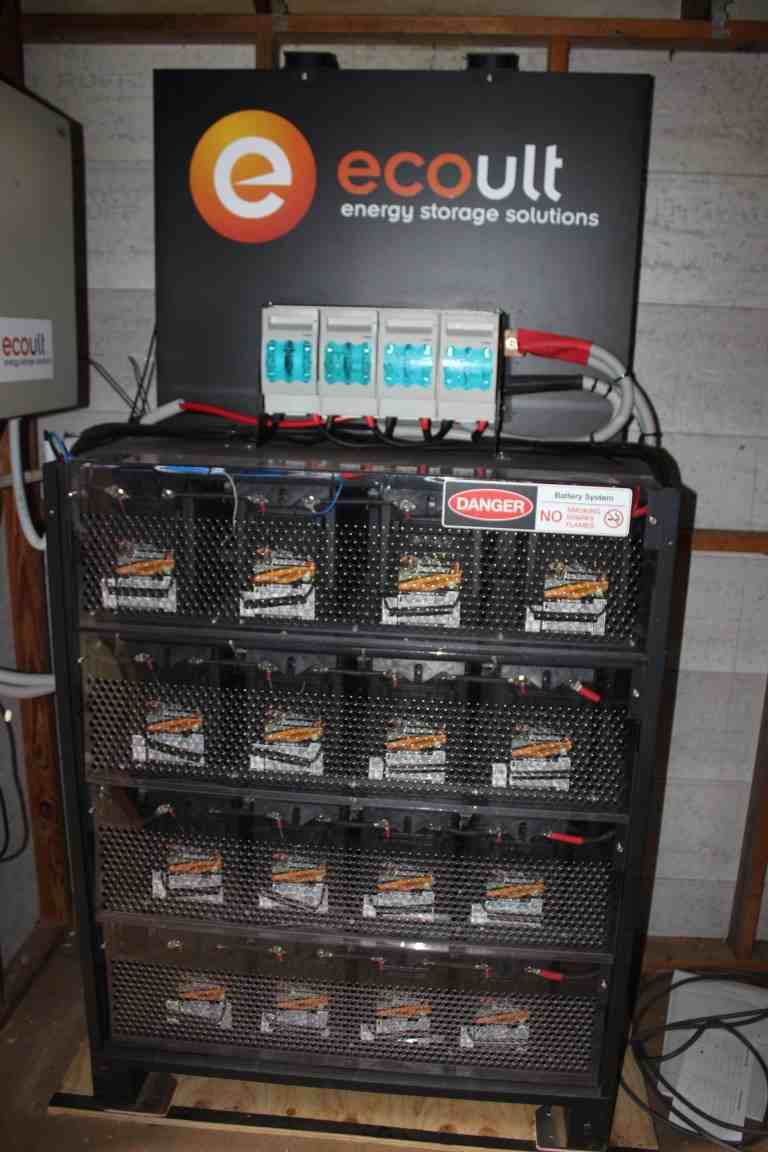Sydney-based battery storage developer Ecoult is entering the commercial and residential battery storage markets in Australia, and believes its CSIRO-developed lead acid battery can fight off competition from lithium-ion rivals.


Ecoult, whose so-called UltraBattery is described was a supercharged lead-acid battery hybrid, on Wednesday launched its 25kW “medium-scale solution” targeted for the commercial market. Next year, by the second quarter, it intends to launch its residential storage project, which will be around 5kWh.
The UltraBattery has already been successfully used on King Island, where Hydro Tasmania has used storage combined with wind and solar to dramatically reduce diesel consumption. It is also providing frequency control and back-up power in large, grid scale installations in the US.
The new 25kW product has been installed in five locations in Australia, including as diesel reduction, back-up and solar smoothing on a resort, and in commercial businesses, including a large solar installer warehouse.
CEO John Wood says he believes that his batteries can compete with lithium-ion rivals on every metric, including cost. The battery array – with peak power of 25kW and more than 11kWh of storage – is to be sold at “slightly” less than $20,000.
“Lead-acid batteries have been used widely since the 1800s, but UltraBattery completely changes the lead-acid paradigm,” Wood said.
“Lead-acid chemistry really is the giant in plain sight in the search for energy storage resources to support the integration of higher proportions of renewables in a whole of system approach.”
Wood notes that the amount of lead acid storage being manufactured in the world today remains around 10 times that of lithium ion.
“The lead-acid battery is by far the world’s most ubiquitous energy storage chemistry.” He says UltraBattery iallows lead-acid to work well in applications that require continuous high-rate cycling.
And, he says, it is environmentally sustainable, and safe. Around 96 per cent of the lead acid batteries being produced now can be recycled into new battery storage.
Wood says the new product, known as UltraFlex, will suit industrial, agricultural, off-grid and business customers, helping them to integrate renewable energy and increase the reliability of grid systems, as well as the efficiency of diesel generators in off-grid situations.


At the CedarVale Health Retreat in Kangaroo Valley, NSW, which is off-grid, the addition of the UltraFlex allowed it to achieve close to zero diesel usage. Almost 100 per cent of its power came from onsite solar and micro-hydro generation.
“We’ll soon launch a new residential UltraBattery product into the Australian market and announce a new megawatt scale partnership,” Wood said.
“We aim to improve on lithium-ion on all metrics … the end goal is to provide cost-effective storage to smooth and supplement clean but intermittent renewable energy generation around the world, and improve the quality of power produced.”


View Comments
What's the spec's look like?
four year life span and 80 % round trip efficiency. This is 19th century technology, after all.
Does it weigh a tonne as well for a standard domestic hybrid system?
A disclaimer that I have a relationship with this company...
But 90% or higher round trip efficiency and 10 year+ life according to CSIRO and independent studies (see the white paper available on the company's web site). Makes it seem competitive with any 21st century technology. Maybe you have some other source of info though? Can you share where you got your data?